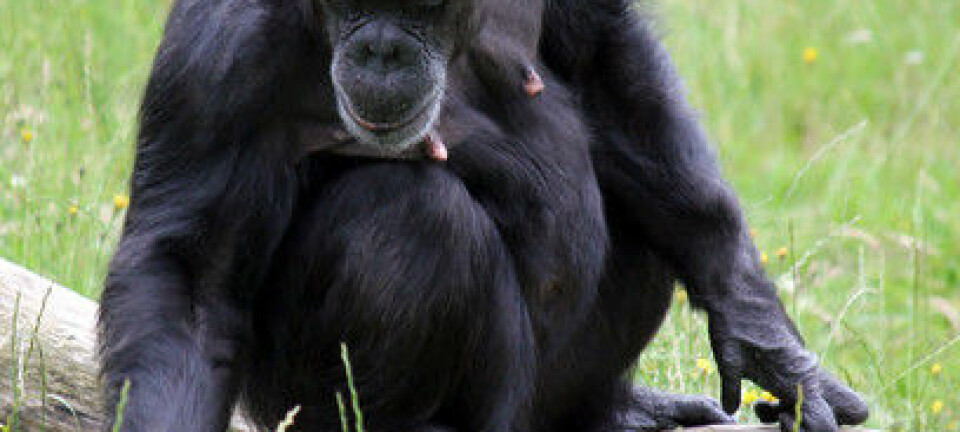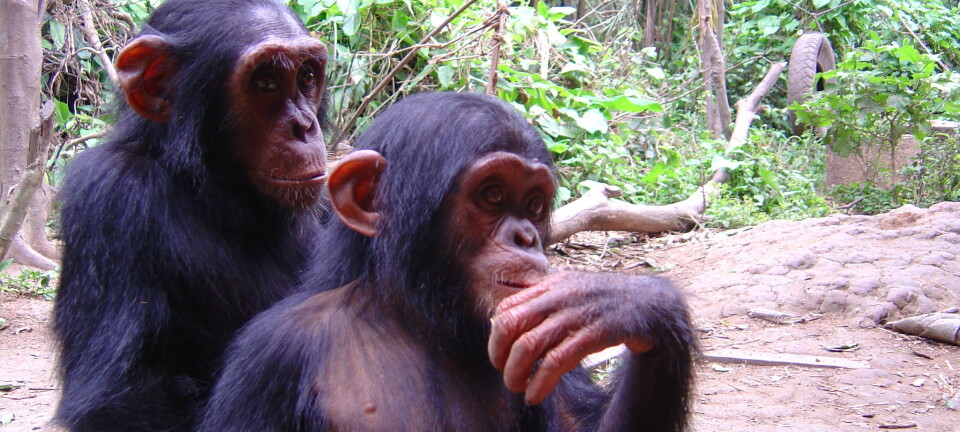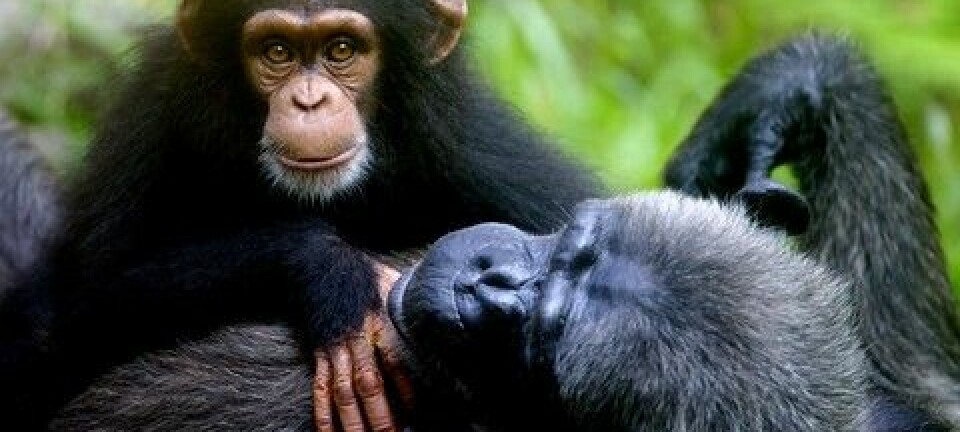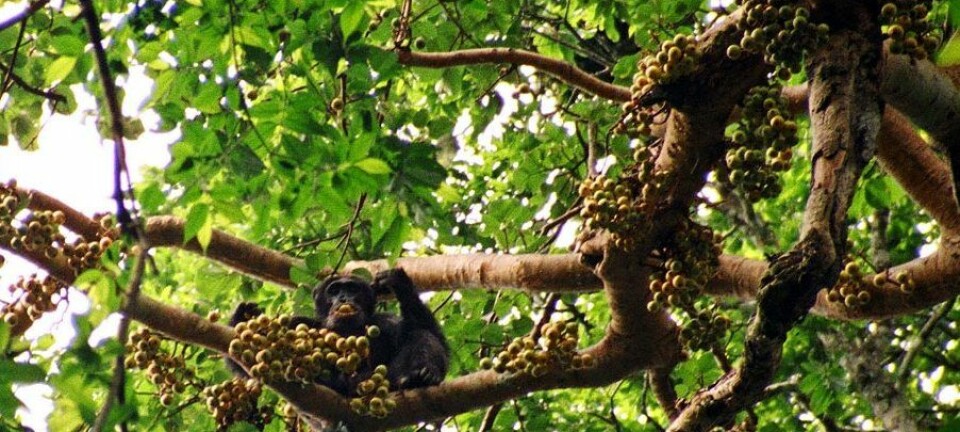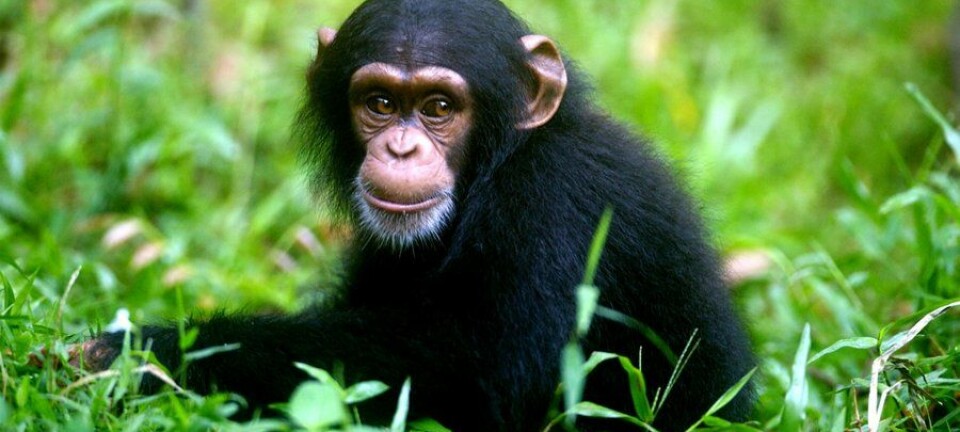Chimpanzees catch yawns from humans
Chimpanzees yawn when they see a human yawn, but not until they reach a certain age, shows study, which hints at a new explanations of the development of empathy.
You probably know it all too well: yawns are contagious. And not only between humans, but across species, too.
A new study from Lund University, Sweden, shows for the first time that chimpanzees catch yawns from humans.
But not before the chimpanzees have celebrated their fifth birthday, indicating that contagious yawning might be a trait acquired as we learn to understand others’ feelings.
“We know there is a correlation between empathy and contagious yawning but the question is whether it’s empathy creating the contagious behaviour or not,” says evolutionary psychologist Elainie Madsen, the lead author of the new study recently published in the journal PLOS One.
By studying the chimpanzees’ contagious conduct, Madsen hopes to get a step closer to answering that question.
Orphaned chimps were ideal test subjects
Madsen has previously demonstrated that dogs won’t catch yawns before the seven-month mark; for humans it happens around our fourth year.
To determine the onset of contagious yawning in chimpanzees, Madsen travelled to a sanctuary in Sierra Leone where around 100 chimpanzee-orphans live.
Most of the orphans have lost their parents to poaching and are now taken care of by their loving surrogate mother, Mama Posseh, who has a very close bond to the chimps, explains Madsen. This made them ideal for her experiment.
Contagiousness comes with age
Some 33 chimpanzees participated in Madsen’s experiment – 12 aged between 1 to 4 and the rest between 5 and 8 years.
Each one of the chimpanzees went through extensive yawn research: first a control followed by three test rounds where either a stranger, the researcher, or a familiar face, Mama Posseh, in turn would yawn, gape or wipe their nose.
The results were nothing to yawn over. They showed that chimps below the age of four weren’t affected by a single yawn from either Madsen or Posseh, while the older group ‘caught’ 24 yawns in total, indicating that the contagious behaviour doesn’t set in until sometime between the chimps’ fourth and fifth year.
“That’s almost exactly at the same time as in humans, who begin to catch yawns around age four,” says Madsen.
That age is interesting as well, she explains. This is when children start to elicit signs that they can understand other people’s thoughts and emotions.
Chimps didn’t care whose yawn they copied
More surprisingly, however, was that the chimpanzees were seemingly indifferent to the yawn’s source – they weren’t more likely to copy Mama Posseh’s yawning and vice versa.
And this is interesting, says Madsen.
“Humans are more inclined to contagious yawning when the person yawning is someone close to them. And the same holds true for bonobos, baboons and older chimps.”
Humans might trigger special performance
Madsen hypothesises two possible explanations to the non-favouring contagious conduct.
“Either it’s a developmental pattern in younger chimps – they simply copy everyone’s behaviour,” she says, adding that this is highly likely.
Alternatively, it could be that the chimps simply act differently when they engage with humans compared to when they are among peers.
“It’s possible that the chimps use a more general empathy towards humans while it’s more targeted when creating relations as soon as it’s among chimps only,” says Madsen.
-----------------------
Read the Danish version of this article at videnskab.dk
Translated by: Kristian Secher
